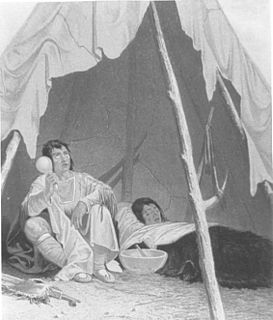 W
WThe name Macedonia is used in a number of competing or overlapping meanings to describe geographical, political and historical areas, languages and peoples in a part of south-eastern Europe. It has been a major source of political controversy since the early 20th century. The situation is complicated because different ethnic groups use different terminology for the same entity, or the same terminology for different entities, with different political connotations.
 W
WThe population figure of indigenous peoples of the Americas before the 1492 Spanish voyage of Christopher Columbus has proven difficult to establish. Scholars rely on archaeological data and written records from European settlers. Most scholars writing at the end of the 19th century estimated that the pre-Columbian population was as low as 10 million; by the end of the 20th century most scholars gravitated to a middle estimate of around 50 million, with some historians arguing for an estimate of 100 million or more. Contact with the Europeans led to the European colonization of the Americas, in which millions of immigrants from Europe eventually settled in the Americas.
 W
WSacred prostitution, temple prostitution, cult prostitution, and religious prostitution are general terms for a rite consisting of paid intercourse performed in the context of religious worship, possibly as a form of fertility rite or divine marriage. Scholars prefer the terms "sacred sex" or "sacred sexual rites" in cases where payment for services is not involved.
 W
WIn historical scholarship, the Socratic problem concerns attempts at reconstructing a historical and philosophical image of Socrates based on the variable, and sometimes contradictory, nature of the existing sources on his life. Scholars rely upon the extant sources, such as those of contemporaries like Aristophanes or disciples of Socrates like Plato and Xenophon, for knowing anything about Socrates. However, these sources contain contradictory details of his life, words, and beliefs when taken together. This complicates the attempts at reconstructing the beliefs and philosophical views held by the historical Socrates. It is apparent to scholarship that this problem is now deemed a task seeming impossible to clarify and thus perhaps now classified as unsolvable.
 W
WFredrick John Stare was an American nutritionist regarded as one of the country's most influential teachers of nutrition.
 W
WTearoom Trade: Impersonal Sex in Public Places is a 1970 book by Laud Humphreys. Humphreys' book is based on his 1968 Ph.D. dissertation, which was entitled "Tearoom Trade: A Study of Homosexual Encounters in Public Places." The study is an analysis of male-male sexual behavior in public toilets. Humphreys asserted that the men participating in such activity came from diverse social backgrounds, had differing personal motives for seeking same-sex sexual partners in such venues, and variously self-perceived as "straight," "bisexual," or "gay."
 W
WTSLAQ is a loose, international collective of largely anonymous short-sellers, skeptics, and researchers who openly criticize Tesla, Inc. and its CEO, Elon Musk. The group primarily organizes on Twitter, often using the $TSLAQ cashtag, and Reddit to coordinate efforts and share news, opinions, and analysis about the company and its stock. Edward Niedermeyer, in his book Ludicrous: The Unvarnished Story of Tesla Motors (2019), establishes the doxxing of Lawrence Fossi, a Seeking Alpha writer and Tesla short seller who uses the pseudonym Montana Skeptic, in July 2018 as the catalyst for the formation of TSLAQ. The group was the subject of a Real Vision video which included interviews with prominent members @TESLACharts and @Paul91701736.